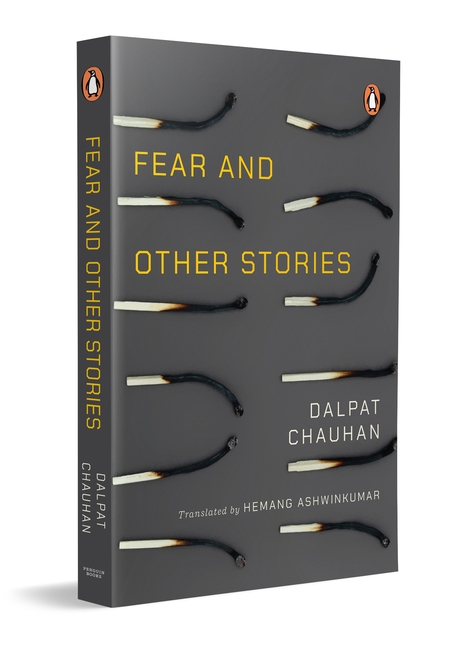
Chauhan’s writing is resistance literature. It echoes the harrowing screams of a people long suppressed.
Fear and Other Stories is a reminder of the inherent dangers of the Dalit life, a life subjected to unimaginable violence and terror even in its most mundane moments. In this collection of short stories, veteran Gujarati writer Dalpat Chauhan narrates these lived experiences of exasperation and anger with startling vividity. His characters chronicle a deep history of resistance, interrogating historical, mythological and literary legends, foregrounding the perspectives of the disenfranchised.
Chauhan deftly wields his prose to counter dominant narratives, pointing out gaps and voicing the silences within. In ?The Payback, for a change, we see famished savarnas begging Dalit families for food that they scorn otherwise. The eponymous Fear follows the heroic but doomed resistance of Dalit youths fighting against savarna men with the ‘right’ to enter their homes and molest women inside. And the allegorical Cold Blood features a doctor who tries to leave behind his identity with his surname, only to be reminded of it when the savarnas accept his blood, but not water from his hands.
Hemang Ashwinkumar’s nimble translation introduces the English reader to Chauhan’s heart-wrenching stories while unmasking a rural Gujarat unrecognizable from its supposedly vibrant idylls. His introduction to the book not just contextualises Chauhan’s work, but is also a touching and thought-provoking commentary on the larger canvas of Dalit literature.
Imprint: India Penguin
Published: May/2025
ISBN: 9780143472438
Length : 224 Pages
MRP : ₹399.00
On this International Translation Day, explore the rich tapestry of Indian literature as we take you on an adventure through these must-read translations that cover the length and breadth of the country. Immerse yourself in the vivid hues of regional literature as these translated works offer a glimpse into the soul of India, serving as […]
